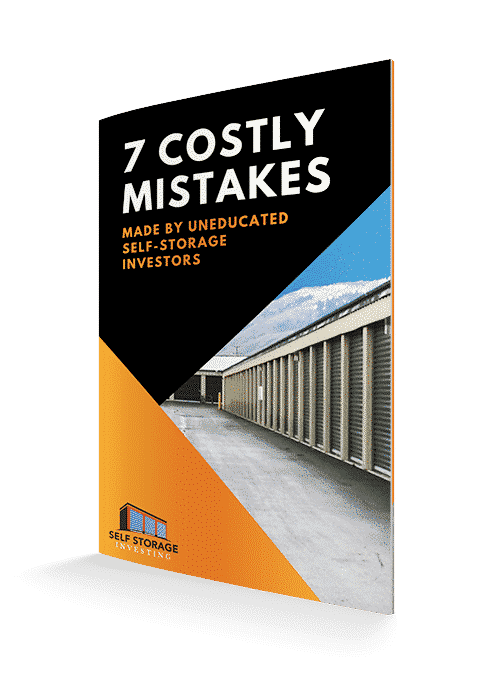What are alternative investments?
As an investor, it’s always good to think outside the box and diversify your investment portfolio with new and inventive ways to make money. Taking a look at your portfolio and finding the same old usual investments can get stale. What about alternative investment strategies? You might be surprised at the number of ways you can put your money to work for you by using different investment options.
Alternative investments can be especially useful during times of economic crisis. While traditional stock markets might fall during global pandemics, like COVID-19, some alternative investments will remain steady or perhaps even increase in returns. Check out our guide to alternative investments to see how you can strengthen your portfolio with secret money-makers. Let’s answer some common questions associated with alternative investing.
Are alternative investments the same as passive income?
Alternative investments are an asset class, and many of them generate passive income without the hands-on approach of the investor. You can invest in alternatives and generate passive and active income.
Is it possible to invest in alternative investments even if you are not an accredited investor?
Absolutely! Some alternative investments are more accessible to institutional or accredited investors, but others, like real estate and rental properties, are accessible to many different investors.
Are alternative investments safe from economic downfall?
Like every investment opportunity, there are risks involved. Most alternative investments are not tied to the stock market like traditional stocks, bonds, and public company shares. They can safeguard your wealth against global pandemics, market crashes, and disasters.
Why is it good to have a diverse portfolio?
Have you heard the saying “you shouldn’t keep all your eggs in one basket”? Well, the same applies to investments. By diversifying your portfolio, you can earn different streams of income, some passive, that can help you use your money in the best way possible to bolster your wealth.
Are alternative investments risky?
It depends on the type of alternative investment you choose to invest in. Like with any investment, there are risks and rewards, and some are greater than others. You should consider all your options before investing and make sure you do all the due diligence. We recommend speaking to an expert in the area in which you want to invest.
Key Components of Alternative Investments
So, what are alternative investments, exactly? An alternative investment strategy can be any financial asset class that doesn’t fall into the traditional categories of stocks, bonds, and cash investment assets. Many alternative assets are held by high-net-worth individuals due to these assets’ lack of regulation by the SEC and their volatility.
Most alternative investment asset classes are illiquid, which means they cannot be sold very easily or quickly for cash. This is usually due to a smaller pool of buyers for illiquid assets. Many alternative asset classes cost a lot of money upfront, so it can be difficult for new investors to break into this type of investing. It has become easier in recent years due to alt funds, mutual funds, and ETFs.
How Do Alternative Investments Work?

Alternative investments are any type of investment that is not a traditional stock or bond. This could be anything from artwork to commodities to real estate. Alternative investments work in the same way that typical investments work. They produce a rate of return by appreciating in value or providing other benefits.
Many alternative investments are primarily held by accredited investors, but others such as real estate, are easily accessible to all types of investors. Most alternative investments appreciate in value, gain interest, or provide dividends to investors.
Regulation of Alternative Investment Assets and Exchanges
These investments are usually not regulated by the Securities and Exchange Commission (SEC), which makes them more risky and hard to evaluate. Alternative asset classes fall under the Dodd-Frank Wall Street Reform and Consumer Protection Act. Some practices can be subjected to the scrutiny of the SEC, but they are not required to register.
At an early stage, investors should examine all transactions involving alternative investment assets with the utmost scrutiny to prevent any losses in the future. It is important that every investor hire an investment manager or attorney to conduct all the proper due diligence before proceeding with a deal. Some alternative investments are only available to accredited investors, which are individuals whose net worth exceeds $1 million, not including the worth of their residence.
Benefits of Alternative Investment Strategies
While these investments are unique, they offer some of the same benefits that traditional investments do. Many of these investment vehicles yield a high return once they are liquidated compared to stocks and bonds. One benefit is these investments are not correlated with a stock market, so they can safeguard your wealth against typical market value dips. For example, during this current COVID-19 outbreak, alternative investments will remain relatively stable.
Another benefit for alternatives investors is the direct ownership and control they have over their investment funds. Compared to traditional investments, alternative assets are owned, most of the time, solely by the investor, who can do whatever they want with them.
For many investors, their taxes each year take a big chunk out of their income potential. With alternative investment opportunities, you get more tax breaks. The two main tax benefits are long-term capital gains tax breaks and depreciation benefits.
Most investors may want to live a passive income lifestyle to earn money while they live their lives, and who can blame them? This is one of the benefits of alternative investments. Investors in alternatives can earn passive income on rental properties, equipment rentals, and self-storage facilities, to name a few.
Highlights of Alternative Investments
- Safe haven for wealth during an economic downturn
- Tax benefits
- Direct ownership
- No correlation to market
- Generate passive income
Potential Downsides of an Alternative Investment Portfolio
While all of this talk about alternative investments sounds great, what could be the potential shortfalls? Like every investment opportunity, there are some risks involved with this type of investing. Compared to traditional investment vehicles, alt investing can have higher minimum investment amounts and fees. Fund managers will charge you to manage this type of portfolio.
It can also be difficult to determine how much money you actually stand to make off a particular investment. Since there are fewer data and buyers, you might have to hold onto an alternative investment much longer than expected. The potential for greater returns usually means greater risk. However, not all alternative investments are risky.
Who Are Alternative Investments Best For?
Like any money-making opportunity, this investment type is not for everyone. Alternative investments tend to be better suited for people with a high net worth, such as institutional investors or accredited investors.
Even if you do not fall into one of those categories, it is still possible for you to break through the high barriers to entry and make an alternative investment that suits you. Real estate is a great place to start your alternative investing journey. As a potential investor, you should consider your time outlook, investment objectives, and market conditions before investing in alternative assets.
What Are Some of the Best Alternative Investment Strategies?

Private Equity
Private equity investments are one of the most popular types of out-of-the-box strategies. In this type, an investor will take an ownership role in a company that has not gone public yet in the current market. The main goal of this investment asset is to provide capital to companies to help them restructure their wealth and business plan. This will help the company make a long-term profit, which will then provide the investor with the appropriate dividends. The new capital investment can help a company handle operational problems and other issues. Your job as an investor is to help a company grow slowly from within, and, in the process, you can turn quite a profit yourself.
Venture Capital
Venture capital investors provide funding for early-stage companies and start-ups in exchange for ownership shares in that company. The majority of funds for start-up companies come through venture capital firms or investors. Venture capital funds are then used by the company to grow its business, intellectual property, and products. Most venture capital investors take a stake in a start-up with the intention of making the company profitable in a relatively short amount of time.
Over time, anywhere from 2 to 10 years, the investor will sell the company or go public on the stock exchange in an initial public offer. These types of investments can be quite risky but also have huge returns. Many times you will see venture capitalists investing in technology or medical start-ups.
Real Estate
This is one area of alternative investments that has fewer barriers to entry for new investors. It is still one of the most profitable investments that a person can make. Since real estate can be bought with a 20% down payment, the investor can rent out the property, and the passive income will pay the mortgage and any other costs. Once those are covered, the rest of your income is net profit.
Another option for investing is real estate investment trusts (REITs). These trusts are ideal for people who want to reap the benefits of owning real estate without having ownership responsibilities. REITs are similar to crowdfunding for real estate. Multiple owners will get the profits and tax breaks.
Self-Storage Facilities
Did you know that self-storage facilities have steadily grown in the last year, even during the COVID-19 outbreak? This is a great way to safeguard your wealth against economic crises in the future. Self-storage facilities can be purchased, developed, or acquired in the same way that you buy other commercial real estate properties. You can finance the project through an approved lender. Self-storage facilities are a powerful secret money-maker.
Storage facilities have a low tenant turnover rate, low maintenance, and generate passive income. Most of the time, tenants will have their own key and passcode to the gate. You just need to install CCTV and maybe a nighttime security guard. Storage units don’t have any trash, tenants, or plumbing, which makes them one of the better alternative investment strategies.
Hedge Funds
A hedge fund is an investment vehicle that uses pooled funds from a fund manager and other limited partners to make money. They often use a variety of tactics on a larger scale than each individual partner might be able to do. A hedge fund uses techniques such as short-selling some investments while maintaining long-term investments in other stocks. Their goal is to drive up the return on their long-term stock. This technique is called the long-short model.
Equipment Leasing
This is one of the more abstract and broad forms of investment, but it can be profitable and low maintenance. Equipment leasing is similar to a hedge fund in that a group of people pools their money together in a portfolio and leases equipment to companies or individuals. The types of equipment can vary from construction machinery to medical supplies to vending machines.
Intellectual Property

Are you interested in finding the next big brand or idea, such as Nike or Budweiser? Then, this might be a good alternative investment for you to look into. This asset class is intangible and consists of ideas, inventions, or a branding strategy. One unique feature of intellectual property investment is it can increase indefinitely. For example, McDonald’s brand won’t be going anywhere anytime soon. It has become a global brand that represents the entire fast-food industry. It can be difficult to determine the value or potential return on investment of intellectual property, so make sure you hire the best IP attorneys and fund managers to assist you.
Cryptocurrency
Cryptocurrency has made a surge in recent years in terms of investing. Cryptocurrency is also known as altcoins. It’s a digital currency that holds value similar to the way standard currency does. The new age of digital currency is basically replacing the fiat money system in the same way that currency today replaced the trading system. Altcoins can make great alt investments since they are relatively safe from economic meltdowns.
Alternative Investment Takeaways
The bottom line is alternative investments are a fantastic way to diversify your portfolio, safeguard your wealth, and help your money work for you in out-of-the-box ways. Now, you’re almost ready to invest the right way to generate consistent passive income. Submit your Application to be an Investor with us, and get started today.






